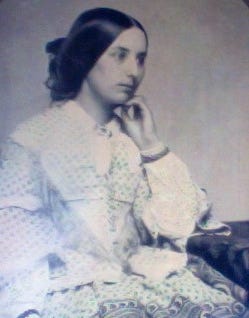A friend of a friend recently asked me what I thought of John Keats. In 2009, I was cycling down Grafton Road, near Gospel Oak in north London, on my way to Birkbeck College where I’d just started a job. As I was cycling, I was listening to a podcast from the New York Review of Books: it was a conversation between the literary critic Christopher Ricks and editor Giles Harvey about Stanley Plumly’s Posthumous Keats: A Personal Biography (2008). Plumly was a poet (he died in 2019), and his biography offers not a chronological life but a fragmented, impressionistic account. ‘I wanted to walk around in Keats’ life and art,’ Plumly wrote, ‘not simply through them.’ Ricks’ voice came down a very bad phone line and he sounded like he was speaking from the 1950s.
Grafton Road was quiet – it was mid-morning – and I passed Kentish Town City Farm on my left as Ricks started to read a poem by Debora Greger. I liked it immediately. It was called ‘Her Posthumous Life’. The poem’s narrator was Fanny Brawne, writing long after the death of her fiancé Keats, after she had married a wine maker’s clerk and become Mrs Lindon, but speaking to her children about the young man she once knew who wrote her poems. ‘I thought little of it / at the time, but you will have heard his name.’
Just past Carlton Primary School, a car pulled out of Queens Crescent, into my path. I put on my breaks hard and stopped short of the car, which, noticing me, had itself lurched to a standstill, but my bike stopped so suddenly that I flipped over the handlebars and landed on the road. The driver of the car shouted at me. A cyclist behind me, who I hadn’t previously noticed – on a racing bike, and in Lycra cycling gear – shouted at the car driver, and when the car pulled away aggressively – I was sitting up on the road, not yet standing – the cyclist said something to me which I couldn’t hear and then followed the car in equally aggressive pursuit. That was the last I saw of either of them. All of this was about a mile from Keats’ House in Hampstead. I lifted up my bike. I picked up my bag. My i-Pod with its black headphones attached was scattered across the road several yards away. It looked like a snake. When I retrieved it, Ricks was still talking: he’d finished reading the poem and was saying thanks to the host. ‘Thank you very much Giles: goodbye.’ I wasn’t injured but I had the particular sense of shame that a bike accident induces. The result of this is that whenever I read Keats’ poems or letters or biography – or when a friend of a friend asks me what I think of John Keats – this is my starting position, the set of contingencies from where my engagement with Keats begins: the aggressive driver, the flip over the handlebars, the tinny voice of Christopher Ricks carrying on from the tarmac.
You can listen to the New York Review of Books podcast via Internet Archive here, with Debora Greger’s lovely ghostly poem at around 14 minutes.



That podcast is a good discussion of biography, especially on the greatness of the letters. Thank you for the recommendation.
How typically generous of Christopher to use such an occasion not only to express his pleasure in the Keats book, but to promote a living poet. He is such a fine reader that it is a great pity he has never been asked to record a selection of poems from his Oxford Book of English Verse.